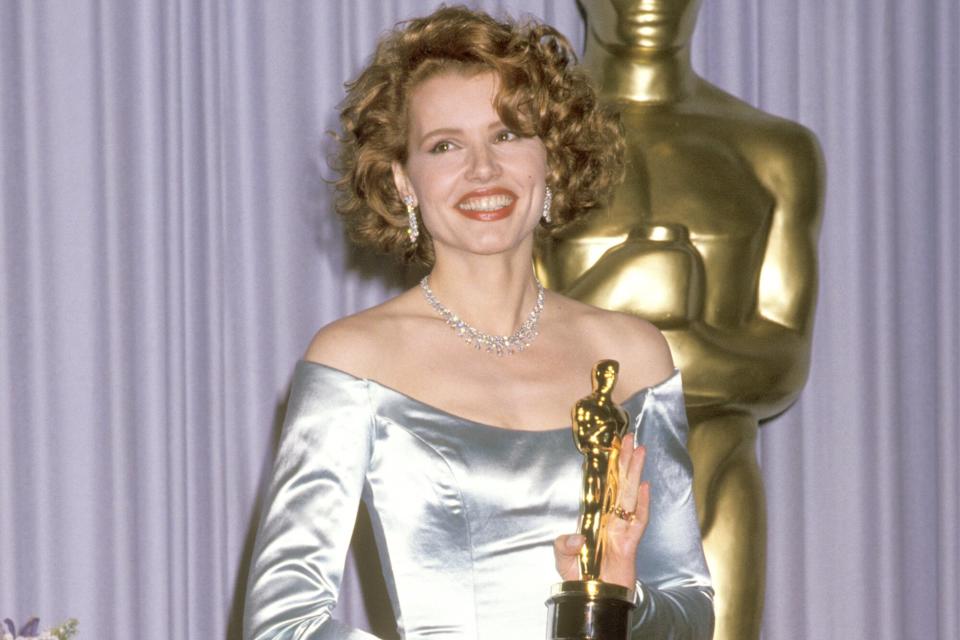Geena Davis says directors 'wanted to make sure I knew my place' after she won an Oscar

- Oops!Something went wrong.Please try again later.
Winning an Academy Award is a lifelong dream for many actors, but it's not always the career boost one might hope.
For Geena Davis, who won the Oscar for Best Supporting Actress for 1988's The Accidental Tourist, she learned the hard way that not everyone is necessarily happy for you after you snatch that coveted trophy. During a recent appearance on Allison Kugel's podcast Allison Interviews, Davis recalled working with two filmmakers who thought she needed to be put in her "place" after her big win.
"I had two directors, after I won the Oscar, who I had a rocky start with because they assumed that I was going to think I was 'all that,' and they wanted to make sure that I didn't feel like I was 'all that,'" the actress said. "Without having met me or having spent any time with me or anything, they just assumed I was going to be like, 'Well, now no one is going to tell me what to do!'"

Ron Galella/Ron Galella Collection via Getty Images Geena Davis at the Oscars in 1989
Davis didn't think winning the Oscar would be some "magic ticket to doing everything I want to do," but she did feel "a tremendous feeling of having accomplished something," she said. "I thought, 'Well, I got that out of the way. I never have to wonder if I'm going to get one of these things.'"
The unnamed directors apparently saw things differently. "They wanted to make sure I knew my place," Davis said, "and maybe… it probably wouldn't happen to a man." The actress, who also earned a Best Actress nomination for 1991's Thelma and Louise and and received the Jean Hersholt Humanitarian Award in 2019, added that the directors might have had an "unconscious bias."
Experiences like that no doubt led her to found the Geena Davis Institute on Gender in Media in 2004, which researches gender representation in media and advocates for equal representation of women.
"The goal is to have the fictitious worlds that are created reflect the real world, which is half female and incredibly diverse," Davis told PEOPLE in 2020. "It's not some weird, outrageous concept to make it so that kids can see people like them on the screen."
Listen to Davis' full podcast interview below.
Related content:

